(MENAFN- Asia Times)
The new MAGA coalition has officially had its first internal debate, and it's over H-1b visas. It started when trump appointed Sriram Krishnan, a former twitter exec and Andreessen Horowitz partner, to be a senior AI policy advisor.
Krishnan has been a vocal supporter of skilled immigration. This angered some right-wing activists, including an anti-immigration group calling itself“US Tech Workers”, as well as Laura Loomer , Charles Haywood , and other MAGA shouters :

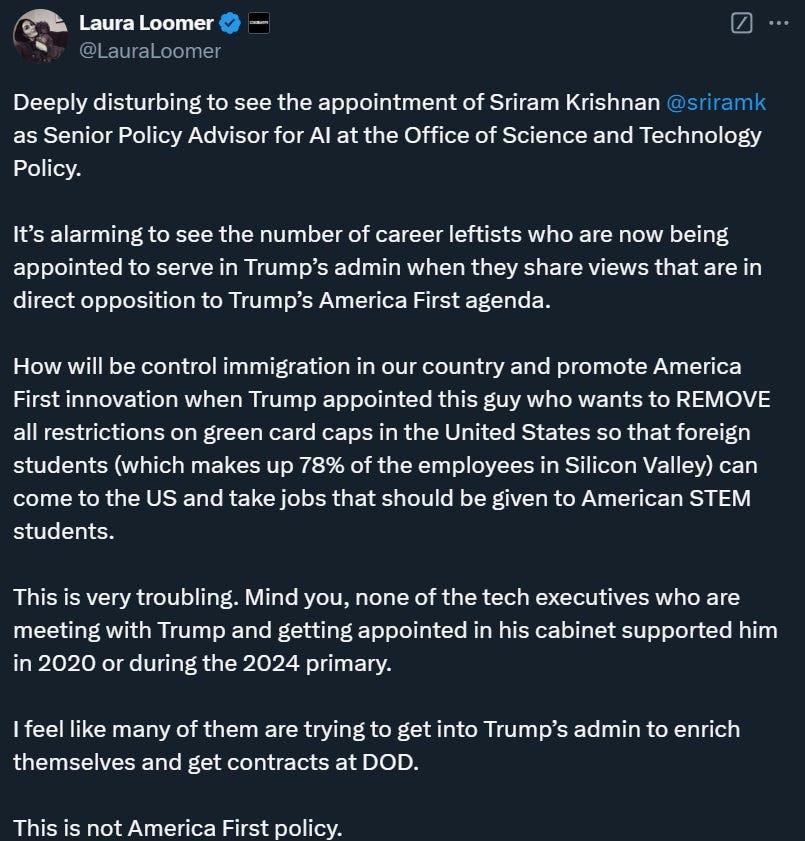

Various figures on the Tech Right, including
Elon Musk ,
David Sacks , and
Joe Lonsdale , gamely stood up for Krishnan and for the idea of high-skilled immigration in general:
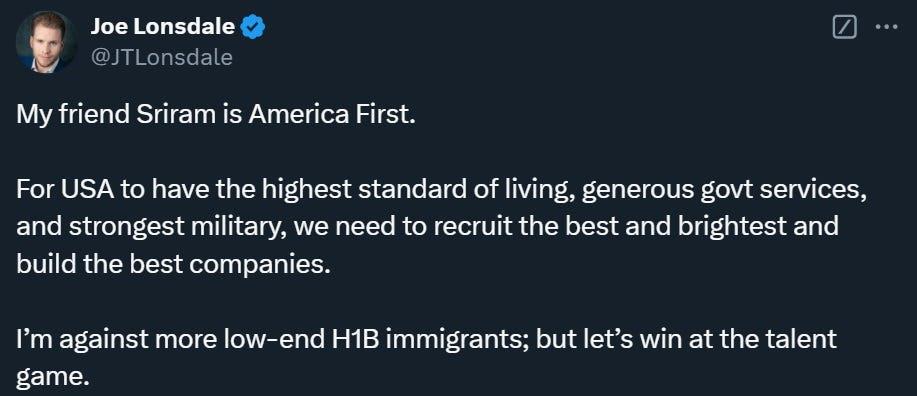
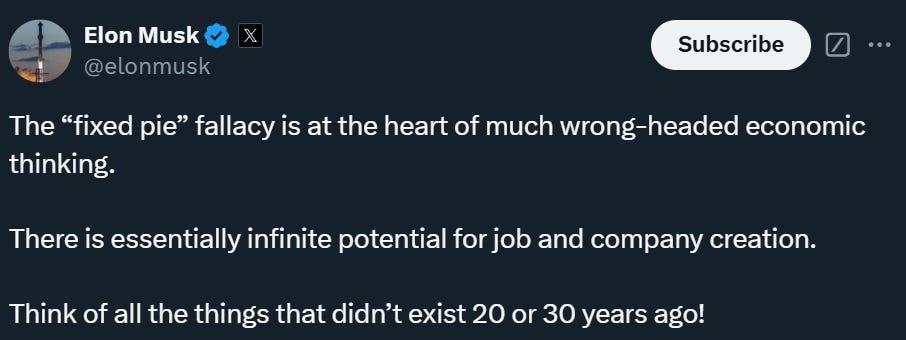
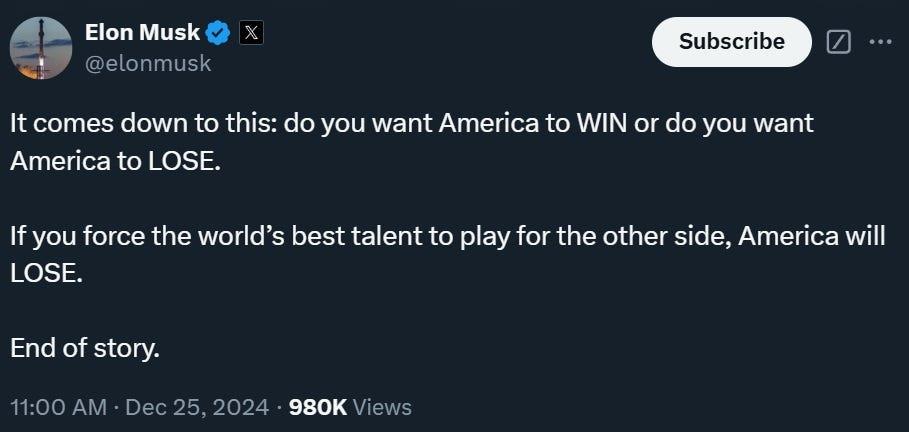
A tremendous fracas ensued on X, which has basically become the in-house conversation room for the American right. Far-right trolls (including the pathetic but persistent“groypers”) jumped in to attack Indians as a group, and Indians jumped in to defend themselves.
Meanwhile, more intellectual discussion shifted to the H-1b visa, which - though not the same as the green card issue that Sriram was talking about - has become a focal point of right-wing pushback against high-skilled immigration.
The debates over high-skilled immigration, Indian immigration specifically, and programs like H-1b are closely related - increasingly so, in fact.
Most H-1b workers are Indian , and Indians
make up a plurality
of foreign-born STEM workers. Indian workers have become far more important than Chinese workers to America's strategic high-tech industries:
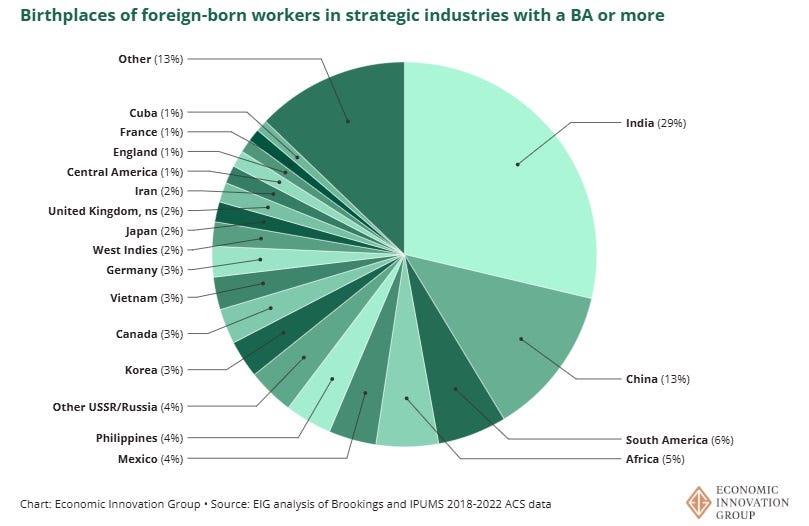
Source:
EIG And although Indians are now
the second-biggest group of foreign-born residents
in America (behind Mexicans, of course), they are also the most successful by many measures - their
median household income
far exceeds that of any other group.1
And Indian Americans are now influential well beyond STEM and the tech world - for example, in politics. Kash Patel has been nominated to head the FBI, and Vivek Ramaswamy is helping to lead the new Department of Government Efficiency.
Even Vice President JD Vance's wife is Indian! Although Indian Americans still lean a bit toward the Democrats on average, they're becoming more evenly split between the parties - there are a substantial number of Indians on the right now, despite the presence of another faction of the right that doesn't particularly like Indians.
So the debate over skilled immigration is actually just part of a broader debate about the fast-growing role of Indian and Indian-American people in the US elite. But first, let's talk about skilled immigration on its own merits.
H-1b workers are good for American tech workers (and for American workers in general)
First, let's point out that skilled immigration overall is very important and good for America. Elon Musk is right when he says“If you force the world's best talent to play for the other side, America will lose.” Here are two Noahpinion posts (here and here ) that lay out the case pretty exhaustively.
In fact, the American people pretty strongly agree. A recent
Pew poll
found that an overwhelming majority of Americans place a priority on letting in highly skilled workers:
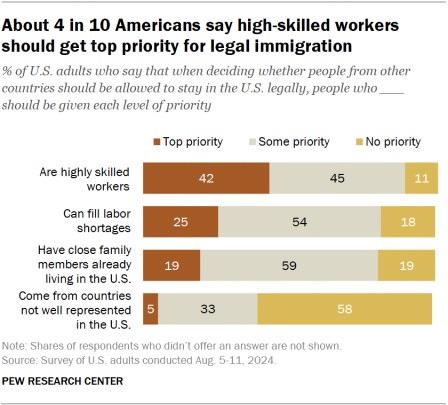
Source:
Pew Other
polls
find
the
same thing .
But H-1b is a little different. Technically, the H-1b is a“nonimmigrant” visa - you can only work in the U.S. for six years before returning to your home country. In practice, many H-1b workers apply for employment-based green cards while they're here, which is one reason why people casually refer to H-1b as“immigration”, but it's really a guest worker program.
The question is whether those guest workers hurt American workers in the tech sector.
The lobby group“US Tech Workers” would certainly have you believe so. That group does not represent any organization of actual US tech workers - it's an arm of the Institute for Sound Public Policy , a political pressure group set up by Kevin Lynn.
Lynn's experience in the tech industry amounts to about 2.5 years doing business development for a couple of startups in the early 2000s; he doesn't appear to have ever done the type of job that an H-1b worker might be hired to do.
His cofounders have even less experience in the tech industry. So this is just a nativist group that claims to represent a class of workers that it doesn't actually represent, on the theoretical grounds that the presence of foreign workers hurts American workers.
But does that theory hold any water? The basic idea is that an influx of foreign labor is a positive shock to the supply of tech workers. When supply goes up, price goes down - that's Econ 101.
Now, I often remind readers that immigration as a whole doesn't seem to decrease native-born American wages. And that's true - immigrants don't just work, they also buy stuff, and that increase in demand roughly balances out the increase in supply. But in a specific sector, immigration definitely could decrease wages for the native-born.
If you let in a ton of STEM workers, they could drive the price of STEM labor down, while their demand for local goods and services drives up wages in other industries. In this case, American labor as a whole wouldn't be affected, but American STEM workers would get the short end of the stick.
Interestingly, thought, this doesn't seem to happen in practice! The H-1b program involves a lottery system, so by comparing companies whose applicants win the lottery with those whose applicants lose, we get a very good randomized natural experiment that can teach us how the H-1b program changes the fortunes of companies.
MENAFN26122024000159011032ID1109031845
Legal Disclaimer:
MENAFN provides the information “as is” without warranty of any kind. We do not accept any responsibility or liability for the accuracy, content, images, videos, licenses, completeness, legality, or reliability of the information contained in this article. If you have any complaints or copyright issues related to this article, kindly contact the provider above.